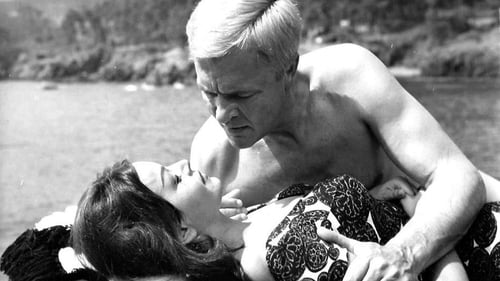Carl de Vogt
Nacimiento : 1885-09-14, Cologne, Germany
Muerte : 1970-02-16
Historia
Carl de Vogt (14 September 1885 – 16 February 1970) was a German film actor who starred in four of Fritz Lang's early films. He attended the acting school in Cologne, Germany. Together with acting he was also active as a singer and recorded several discs. His greatest hit was "Der Fremdenlegionär". An extremely successful actor in his early career, he died in relative obscurity in 1970.
In 1919 and 1920, de Vogt starred in director Fritz Lang's two-part Spiders films opposite actresses Lil Dagover and Ressel Orla. In 1932, in the early sound era, he played the Prussian hero Major Schill in the big-budget historical film The Eleven Schill Officers.
De Vogt was married to the German film actress Cläre Lotto, and the couple had a son Karl Franz de Vogt (born 14 May 1917). He was a member of the NSDAP and the Sturmabteilung.
Description above from the Wikipedia article Carl de Vogt , licensed under CC-BY-SA, full list of contributors on Wikipedia.

Doctor
A strangler is loose on a British estate, and he not only strangles his victims but brands an "M" onto their foreheads before he decapitates them.
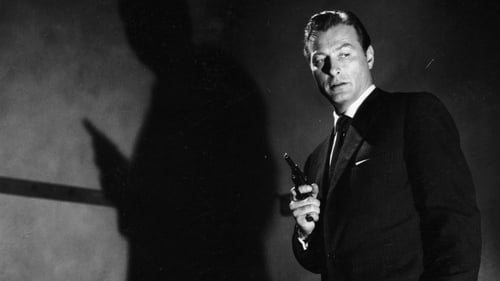
Empfangschef
Strange things happen in a revue theatre. The dancer Maria seems to be hunted by an invisible admirer. When the body of a probable FBI agent is found in a trunk the police asks FBI man Joe Como for help. Como gets interested in the revue theatre and an ominous transport firm soon. When he is receiving mysterious threatening letters he is sure that Dr. Mabuse has risen again. But what is going on at "Enterprise X" so that both the goverment and the mad genius in crime are interested in it?

Patient
Un asesino apuñala a sus víctimas cuando están a punto de emprender un viaje.

Älterer Mann

After the fall and before the wall.

Postman Titus Müller returns from his daily rounds with a letter that will change the course of his modest provincial existence.

Rechtsanwalt Dr. Vollbrecht
1939 German film.

Unteroffizier Macke
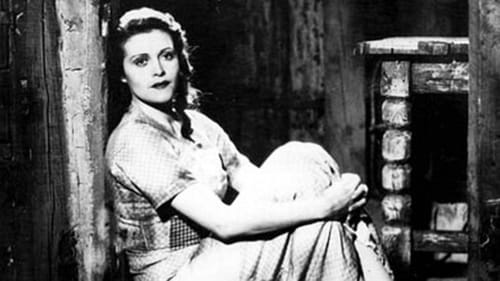
The Minstrel
A beautiful young drifter comes to a small village and battles Death itself to save the man she loves.

Konrad Pfister, Sohn

Konrad Baumgarten

Siedler Kollerbuch
Directed by Carl Froelich

Bundesrichter Dr. Reymond
Directed by August Kern & Anton Kutter

Blood and Soil (German: Blut und Boden) refers to the ideology focussing on a concept of ethnicity based on descent (Blood) and homeland (Soil). It celebrates the relationship of a people to the land that they occupy and cultivate and places high esteem on the virtues of the bucolic (as opposed to urban) living. From this propaganda film, we learn, how hard it is to be a peasant when liberals rule the state. A family of peasants is forced to sell their property and run away to a big city, where they are forced to live in the poverty. Thankfully when the Nazis take power, they may finally come back and live a happy life. Besides the main plot, there is also educational elements here: Germans are informed how few of them will remain in 2050 year if they don't start a mass reproduction.

A Song Goes Round the World is a 1933 German drama film directed by Richard Oswald and starring Joseph Schmidt, Viktor de Kowa and Charlotte Ander.

Windolf

Herzog von Württemberg

Wirt "Zum schmalen Handtuch"
Herr Hoffmann is a famous widowed singer with a young daughter to raise, aided by his faithful manager. They meet a girl and Hoffmann falls for her, reluctant to believe that in fact she is in love with a musician.

“The Red Cat” is a seedy dive. The rich American, Jefferson, who shows up there one day with his family and who recently became the proud owner of the famous Halifax emerald, particularly attracts the attention of the patrons of the “Cat”. One of them approaches the Americans disguised as a marquis, but he has not reckoned with Jefferson’s daughter, Jessie.

Offizier

Hubmayer, ein Landstreicher

Vogelsang

Rechtsanwalt Dr. Wiegand

Marshall Ney
This presentation of 'Waterloo', a film by Karl Grune about the last hurrah of Napoleon, is a fascinating companion to the Abel Gance epic 'Napoleon'. 'Waterloo' presents a tale of several people involved in the final battle. Napoleon and Wellington, of course, but also the Austrian general Blutcher (who is seen as a ladies' man - his scene with a flirty Countess about halfway through the film is priceless; as are his touching scenes with his plain wife (who he imagines to be a young and nubile girl when they get romantic) and some people within his regiment. Not simply a film of war, 'Waterloo' is a story of people, of lovers, of lost opportunities.

Eisenstecken
A film based on the story of the Tyrolean innkeeper and patriot Andreas Hofer who led an Austrian uprising against Bavarian and French troops during the Napoleonic Wars.

Bernhard Eggebrecht
Film by Wolfgang Neff.

Der Kommandant des U.C.1
a silent war movie by Heinz Paul

Bruder Meinhard

Kölling
After eight years in exile Martin returns to Berlin. He was involved in the German Revolution of 1918/1919 and had to leave the country as a result. Impoverished and lonely, he struggles on alone until the market saleswoman Hanne offers him shelter, although she does not have much money either. They fall in love and Martin even finds work on the construction site for the subway through Tempelhofer Feld. One day, however, he collapses there, whereupon the pregnant Hanne tries to nurse him back to health.

Baron Douglas

Jochen Most

Der Bettler vom Kölner Dom
An international gang of thieves and swindlers decide to move their criminal operation to the Teutonic city of Cologne, but Tom Wilkens, one of the best agents of the international police, is not far behind and leads an investigation to unmask the criminals.

Weddingen
a silent war movie by Heinz Paul

Wenzel von Geyr

Konrad Sturm, Forstadjunkt

Werner
A hunter is hired by a count to track down a poacher who has been killing deer on his estate.

o.A.

König

Martin

Only a fragmented 52 minutes from the film survive.

Hektor
Helena is a 1924 German silent drama film directed by Manfred Noa and starring Edy Darclea, Vladimir Gajdarov and Albert Steinrück. The film was based on the poem the Iliad by Homer. It was released in two separate parts: The Rape of Helen and The Fall of Troy. It was produced by Bavaria Film at the Emelka Studios in Munich. The film was made on an epic scale with thousands of extras, and large sets which rivalled those of the larger Berlin-based UFA.


After the revelation that Georg has seduced her, Maria is driven away by her father. Georg, fearing the wrath of Maria's father, has swiftly abandoned the girl and left for the mining town of Sankt Anton, where he expects to hide easily amongst the large population of colliers. Maria must care for herself, and ends up in Sankt Anton, where she attempts to rebuild her life. There, she gets to know Thomas, and soon the young people are engaged. When Georg and Maria meet again, drama ensues. The film originally ran 97 minutes.

A triangle drama involving a female circus owner's favor has consequences. Paula Busch, the grande dame of German circus, depicts a story from the world of artists, tents and wagons. Deutsche Kinemathek holds a 35 mm print of the film.

Assad von Filneck
Silent movie adaptation of Lessing's play. Set in Jerusalem during the Third Crusade, it describes how the wise Jewish merchant Nathan, the enlightened sultan Saladin and the (initially anonymous) Templar bridge their gaps between Judaism, Islam and Christianity.

Sigurd

Ingenieur Gyldendal
Colonialist adventure film with wild animals.

Kara Ben Nemsi
In the wild, hardly explored mountains of Kurdish country lives the mysterious society of the Jesidi , who are called the devil worshipers by their opponents. In these mountains, shaded by dark fir trees, revenge and hatred reign and constant struggle between the countless races and sects. Strange festivals unite the fervor of thousands, crowned by the dramatic sacrificial death of one of their holy men. And yet, even in these pictures, which are filled with tremendous passion, there is no lack of warm humor and a cheerful, strong forgiving nature that leads everything to a liberating end.
The film is believed to be lost.

Winterstein, Karenows Mitarbeiter
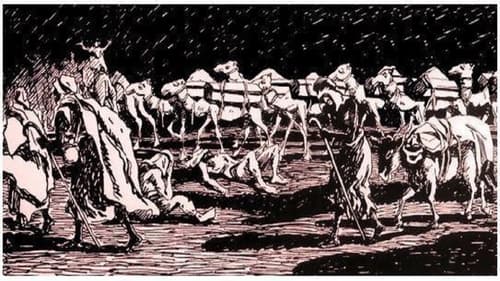
Kara Ben Nemsi
Caravan of Death (German: Die Todeskarawane) is a 1920 silent German film, it was an adaptation of the latter half of the Karl May novel From Baghdad to Stamboul, and is now considered to be lost.
The film featured Bela Lugosi playing an Arab Sheik pitted against European travellers in an adventure story set in the Sahara. It was the second of three films released by Ustad based on desert adventure novels by Karl May. Although Karl May’s widow praised the film, critics were unimpressed and it was a commercial failure.

Adrian Witt
Based on the novel The Black Tulip by Alexandre Dumas.

Kara Ben Nemsi

Rembrandt

Kay Hoog
En la segunda parte, el aventurero Kay Hoog tendrá que enfrentarse de nuevo a la conspiración de "Las Arañas". Además, descubrirá una ciudad china subterránea, custodiada por tigres y cuya existencia nadie conoce.
Si en la primera aventura los incas ofrecían sus sacrificios humanos para ser mucho más fuertes y vencer a los enemigos de Occidente, en la segunda los indios desean recuperar el diamante, que perteneció a la dinastía Ming, para devolver la libertad a Asia y expulsar a todos los extranjeros; si en Der goldene See las Arañas enloquecen y luchan entre sí por el fabuloso tesoro del lago de oro, en Das Brillantenschiff pelean frenéticamente entre ellos para conseguir salir de la gruta venenosa. Y, es muy posible, de haber dirigido Lang las otras dos partes previstas, que Kay Hoog olvidara a su amada dejándose caer en los brazos de Ellen Terry, a la que salva en el último momento.

Landstreicher Stanley
Plot unknown
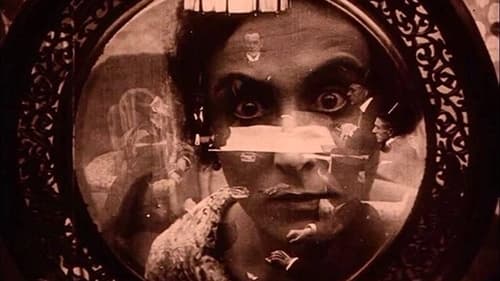
Kay Hoog
Kay Hoog es un millonario aventurero, una especie de cruce entre Phileas Fogg e Indiana Jones. En la primera parte de la serie, "Der goldene see", Hoog encuentra una botella con un mensaje que ha sido arrojada al mar por un profesor de Harvard desaparecido en Perú. A partir de aquí, se suceden las más diversas aventuras: el hallazgo de un gran tesoro de la antigua civilización inca, una organización secreta llamada "Las Arañas", dirigida por una mujer fría y calculadora, viajes en barco y globo. Y, finalmente, Hoog se enamora de una bella princesa inca y la lleva consigo a San Francisco. De Las arañas en particular, de la cual solo pudieron llevarse a cabo las dos primeras partes de las cuatro en que se había concebido, diré que prefigura en cierta manera el tipo de El doctor Mabuse y que está, al menos en su primera parte, inspirada ya de un modo totalmente languiano, a través de noticias y artículos de los periódicos, como haría hasta el fin de su obra en tantas películas.

Vasile Disecu
A man's devotion for a woman brings about his ruin.

The story of a man destroyed by love.

Erich Romberg

Ahasver

Ahasver

Ahasver

A countess decides to get rid of a nosy stranger by luring him into a castle dungeon.



